The human body is impressive, it is better than a machine or a computer because it has the ability to regenerate, to learn, to adapt, to evolve, to improve.
However, no matter how much perfection and wonder the human body generates, it is not exempt from diseases or genetic disorders. With this in mind, we have arrived at the doors of the Down Family Foundation. A foundation that has dedicated itself to working to improve the quality of life of people with Down Syndrome.
Important clarifications
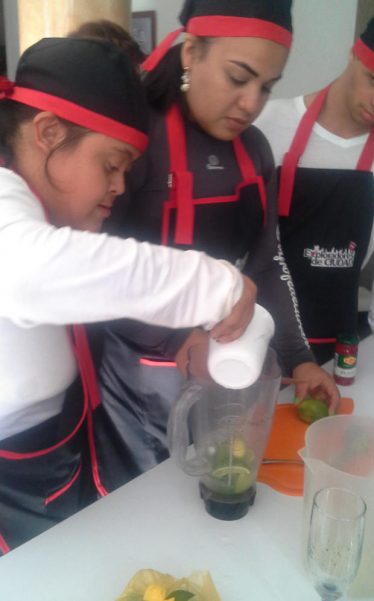
Before we go into details about Down Syndrome, we consider that it is necessary to make some clarifications.
This disorder is characterized by the presence of a variable degree of cognitive disability and peculiar physical features that give it a recognizable appearance. It is at this point that we would like to make a parenthesis on what is cognitive disability.
Cognitive or intellectual disability, then, is a problem characterized by retarded mental growth, this being an anomaly in the learning process.
On the other hand, a syndrome means the existence of a set of symptoms that define or characterize a certain pathological condition.
The background
Down syndrome is so-called because it was first identified in the last century by the English physician John Langdon Down. However, it was not until 1957 that Dr. Jerome Lejeune discovered that the essential reason for the appearance of this syndrome was that the nuclei of the cells had 47 chromosomes instead of the usual 46.
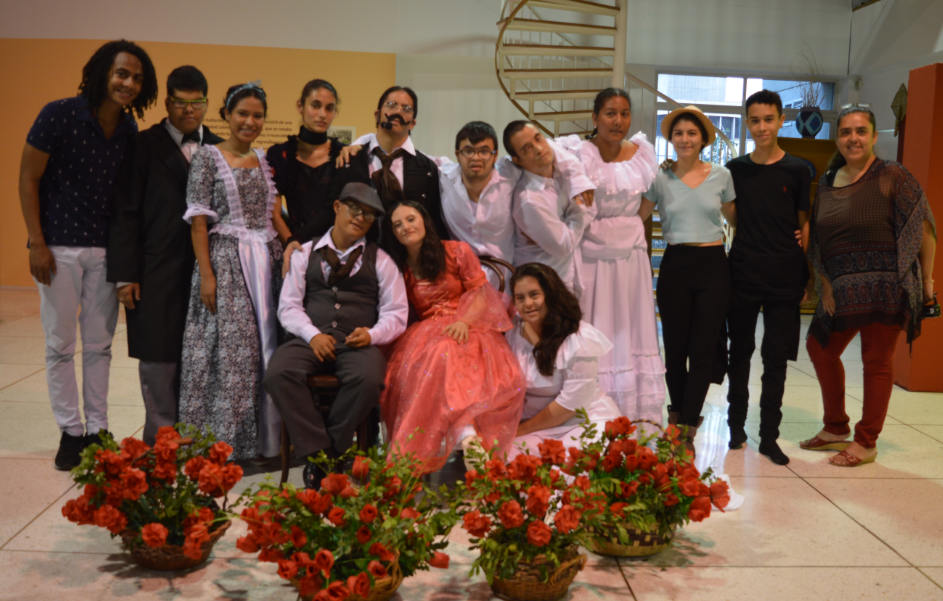
In general, women and men, normally have 46 chromosomes in the nucleus of each cell in our body.
However, DS is one of the many genetic disorders that exist. Down syndrome, also known as DS, is a genetic disorder caused by the presence of an extra copy of chromosome 21 (or part of it), instead of the usual two, which is why it is also called pair 21 trisomies.
So far, the exact causes of the chromosomal excess are not known.
It is also important to take into account that people with Down syndrome have a higher probability than the general population of suffering from some diseases, especially heart, digestive system, and endocrine system diseases, due to the excess of proteins synthesized by the extra chromosome.
Down Family Foundation
We had the opportunity to have contact with Marta Sepulveda, director of the Down Family Foundation. This foundation works with the community with intellectual disabilities and their families in Cali, Valle, Colombia.
The Down family foundation was created 15 years ago. It was created out of a need to create a support network for families. It was created because its founder, Marta Sepulveda, is the mother of a young man with Down syndrome.
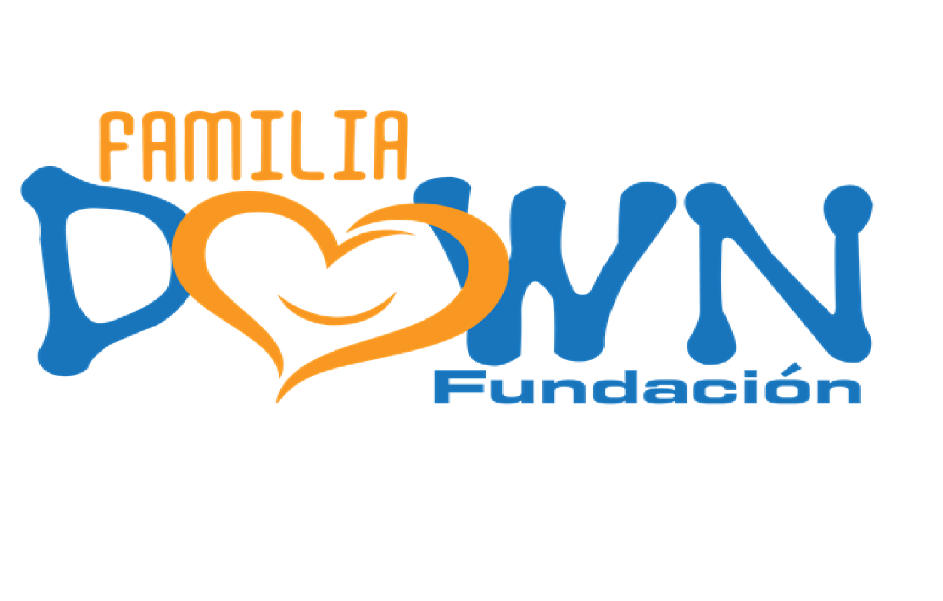
Laura Viera A: Please tell me exactly what happened
Marta Sepulveda, Familia Down director: In a situation of feeling practically alone, that’s how you feel, when you have a baby with a disability, you feel alone because you think you are the only one. There are some questions, there is the stage of denial, where is the why me, what did I do, what happened and now what am I going to do. So even if you have the support of your family, you will always be looking for someone who is in the same situation. So, Tomás always went to therapy and I saw mothers who went to therapy every day and he was there all day long. And then what happens to you, what happens to them, what is the expectation? I created the foundation with some friends, and then I started to invite other families to share these experiences, some of them with a long history and others, like me, who were just starting. The idea was that together we could build and support each other.
They are people like all of us. There is no reason why they should be treated differently just because they do things another way. They are our teachers.
The Down Family Foundation is a foundation that is constantly building processes to be more effective in the advancement of families and their children with intellectual disabilities.
They support and guide families. They create networks and alliances for a real awareness from the visibility and participation in the transformation of environments in the tangible or intangible accessibility for the effective enjoyment of rights as citizens.
A nucleus of support
Now, a baby with Down syndrome has incredible developmental potential, and the better we take care of him/her, the greater this potential will be.
Certainly, there will be certain limitations, but that is not the end of the world. It is necessary to remember that all people have different abilities.
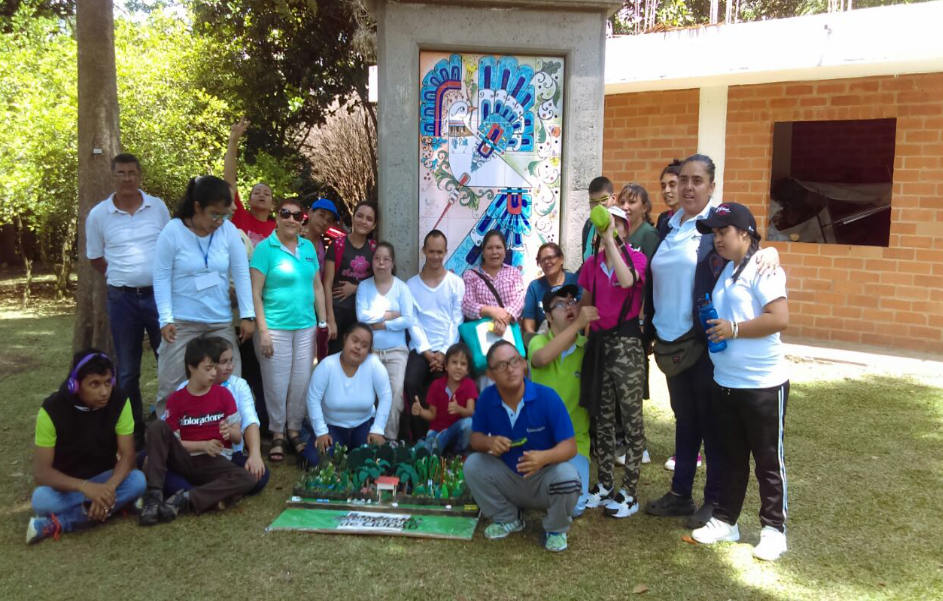
However, despite this anomaly that we have explained, which will impose certain limitations, our work and our support must be able to deploy all their affective and intellectual possibilities. They need this support for their full development. And, therefore, our patient, constant, cheerful, and optimistic work will depend to a great extent.
Another point to bear in mind is that the family is the natural and most appropriate environment in which each human being is welcomed and loved for what he/she is and not for what he/she produces or yields.
The family provides them with the means to grow, develop their abilities and become autonomous and responsible. Bearing this in mind, all children are dependent on their caregivers, who are usually their biological parents, with mothers playing a greater role. However, this dependency decreases throughout their lives.
But families who have a baby or child with a disability face an even more arduous, difficult, and long-lasting task. They have to face and provide solutions to the as yet unknown needs of their child both in the short term and throughout life. At the same time, they have to attend to the rest of their obligations “without breaking”.
Laura Viera A: So, support is necessary?
Marta Sepulveda, Familia Down director: I say that the support network is very important in this space because it is a help to carry emotions, it is a help for collective construction, it is a strength to move forward and precisely to champion ideas and defend rights.
Education
As with any other genetic disorder, adequate access to health care, early intervention programs, and inclusive education, as well as adequate research, are vital for the growth and development of the person.
For this very reason, educational tools and spaces must be appropriate for all people. And, just because a person has a cognitive disability does not mean that they should be marginalized or unable to learn.
We all the right to be a part of something, society must change so that everyine can be a part of it.
Inclusive education is very important since the conquest of rights in terms that everyone has to have a quality education for all, where the school equalizes opportunities, provides access, participation, and permanence in the education of children with cognitive disabilities.
Marta Sepulveda assured us that here the child arrives to transform the school, the school has to begin to change that look, not that homogeneous look, because we are all different. The child comes to school precisely to socialize, to create social capital, and to learn. It is an apprenticeship for teachers, for all children, and a more solidary society is being created.
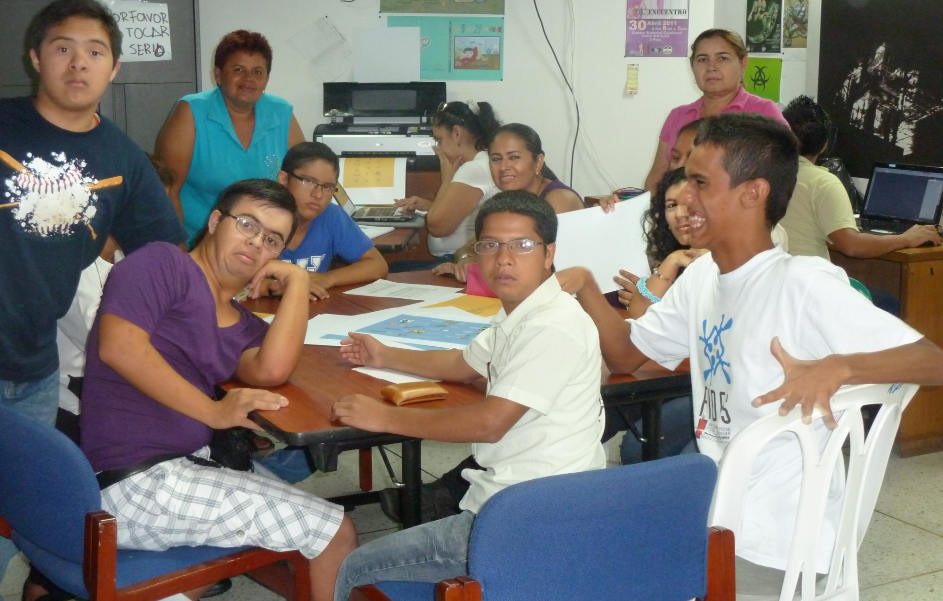
One issue that is very important to clarify is that all children (without exception) need stimuli for the proper development of their motor, cognitive, emotional, and adaptive abilities. Children with DS are no exception, although their perception and knowledge acquisition processes are somewhat different from those of the rest of the population.
An example of this is that the visual abilities of children with DS are, for example, superior to their auditory abilities, and their comprehension ability is superior to their expressive ability so that their language is scarce and appears with a certain delay.
People with Down syndrome have difficulties in focused and selective attention. They also find it difficult to maintain attention over time by concentrating on that object and/or the activity they are performing.
They also have difficulty sustaining attention for extended periods of time. This makes paying attention during a teacher’s explanation can be quite difficult. Being able to pay attention and focus is quite important for learning.
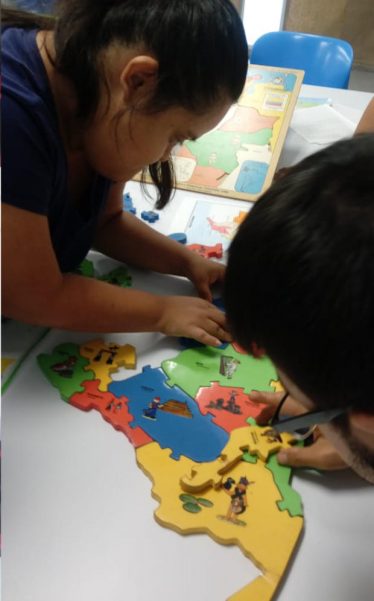
On the other hand, children with Down syndrome may become fatigued early, so they need rest periods to recover. Besides, they are more vulnerable to environmental stimuli than other children and, therefore, are more easily distracted.
They process auditory information with greater difficulty than visual information, although they show difficulties in fixing and maintaining their gaze, which conditions the control of access to auditory information.
Therefore, it is necessary to use unconventional teaching methods.
Laura Viera A: I would also like to know about the blended learning model that you are using.
Marta Sepulveda, Familia Down director: It is a model that is born precisely from doing things, from knowing and starting from interest, from a motivation, learning always has to start from motivation. In this case, the motivation was to know, to be and to learn. Meaningful learning space and that is how explorers educate was born, which is under city explorers. At the moment it is virtual because of the pandemic, we have had quarantine time, and the spaces where we had been working have closed. There we do all the cross-cutting areas: science, language, mathematics. Logically I want to say that this is not only for young people with disabilities, this can happen in all ages, I take it from the need we have to give educational opportunities to those young people who did not have them.
The educational model that the foundation has is called City Explorers. It is an educational project that allows all participants to interact with society, with the spaces of the city, with the green and the institutions. This program focuses on local and regional tourism.
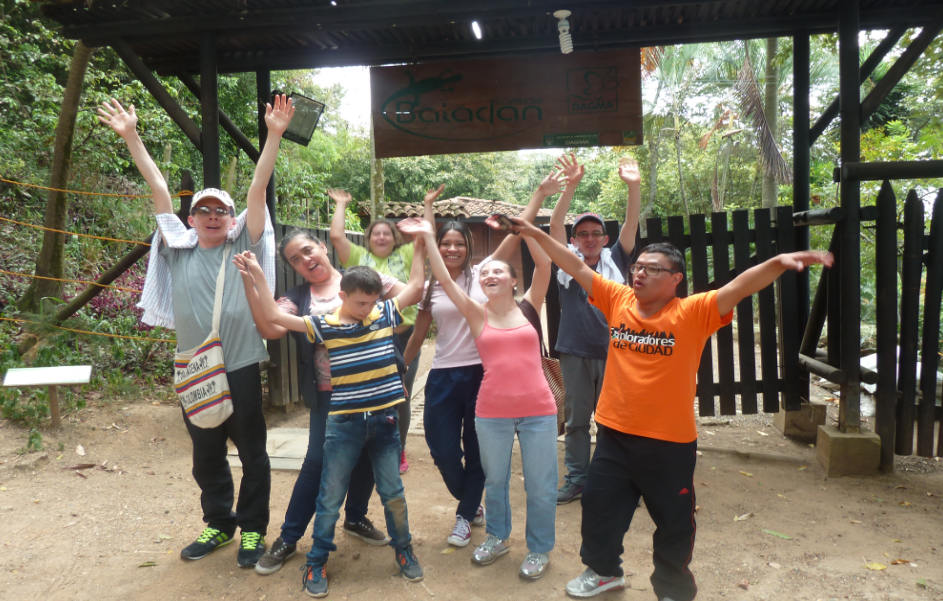
To be a city explorer is to allow oneself to recognize and get to know the place we share as citizens. It is a program that allows people to approach history and culture naturally and openly. It allows them to know the different human expressions through art and daily life, it is to live and enjoy nature close to the emerging gray is to rethink the city we want for us and leave to our children.
Within the framework of this educational program, the Down Family offers a theater group, photography exhibitions, a cultural journalism program in which students interview and develop reports.
An independent life
Even if a person has a cognitive or physical disability, what we want is for them to have a full life: full of opportunities and autonomy.
Certainly, a person has the right to receive a quality education to integrate into the world of work according to his or her abilities. Likewise, people have the right to live as independently as possible. For a person with DS to achieve this degree of independence, adequate training based on personal responsibility, with the necessary material, personal and formal support, is necessary.
It is at this point that it is necessary and appropriate to write about the meaning of independent living. Well, independent living means having equal opportunities, dignity, and self-determination.
Fighting against the current
There are many misconceptions about people with Down syndrome. These misconceptions are largely the result of two contributing factors:
1. The syndrome itself has changed so fundamentally (for the better) with the dismantling of the inhumane institutions in which people with Down syndrome were once forced to live, and 2.
2. The lack of basic medical and scientific research makes it difficult to obtain accurate and up-to-date information about people with Down syndrome.
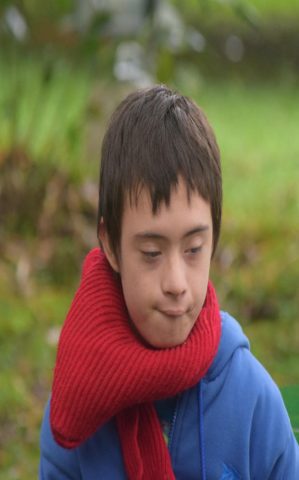
Another issue, which I found to be more common than I thought, is that people use demeaning terms to refer to them. They are called clumsy, chubby and short, oriental looking, yet they are considered gentle, little angels, the baby of the house, always cheerful and loving.
For some reason, it is believed that all people with DS are the same. The truth is that they are not. Each person with Down Syndrome is unique and different from the others; with their own personality and appearance, their abilities and feelings; some are happy and those who are not so happy.
Laura Viera A: Marta, it is very important for me to know, what do you think people don’t know about Down syndrome and a person with this cognitive disability?
Marta Sepulveda, Familia Down director: They don’t know all the dreams they have.
Taking into account the complex and varied situations that children with Down syndrome and their families may face, the Down Family Foundation works from different aspects.
They offer legal counseling, family support programs, support for new families, and also teach the right way to talk about DS.
Knowing how to talk and write about it is apparently not as easy as it sounds. And, why isn’t it? The answer is that mistakes have continued to be made in the media for many years.
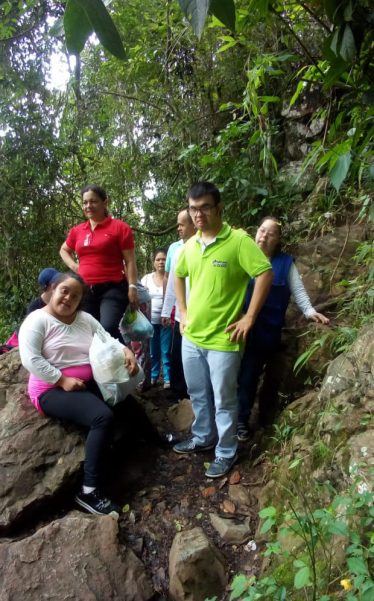
People who do not have a person with cognitive disabilities close to them, talk about them as if they were “not normal” people.
For this reason, we want to explain the correct way to do it.
1. We use adjectives such as “disabled” when we should use other less absolute terms by putting the word “person” in front of it. We should say a person with a disability.
2. Outside and within the group itself, the word “normal” is used when people with disabilities are compared to other individuals or social groups. You should say “people without disabilities” instead of “normal people”.
3. Negative verbs or terms are used, such as “suffers from deafness” “suffers from lameness” “affected by paralysis”. When describing a person who has a disability, neutral language should be used. Use the verb “to have” which is less negative. Example: “has muscular dystrophy”.
4. Other types of confusion are perpetuated, such as continuing to use “mentally handicapped” to refer to people with intellectual disabilities or people with mental health problems indistinctly. It is recommended to use the generic terms “intellectual disability” or “persons with mental illness”. It is much better if the specific disability is specified as “child with autism”, “child with Down syndrome”, “person with Down syndrome” or “child with autism”.
The conclusion
Laura Viera A: How has everything changed since your child was born?
Marta Sepulveda, Familia Down director: My life changed completely. Not only because I became a mother but also because Tomas has been my great teacher. Thanks to him I have dedicated myself to this subject and helping other families.
Before ending, it is worth making three clarifications. The first is that no two people are the same even though they all have 46 chromosomes; neither are two people with DS the same even though they both have 47. This means that their development, their qualities, their problems, their degree of disability will be very different.
The second is that there is no relationship between the intensity of physical features (for example, the face) and the degree of development of cognitive activities. As pronounced as the DS may be in the face, it may not be so pronounced in the development of the brain.
The third is that progress in brain activity is not only the result of genes but also of the environment that nurtures and progresses that activity.
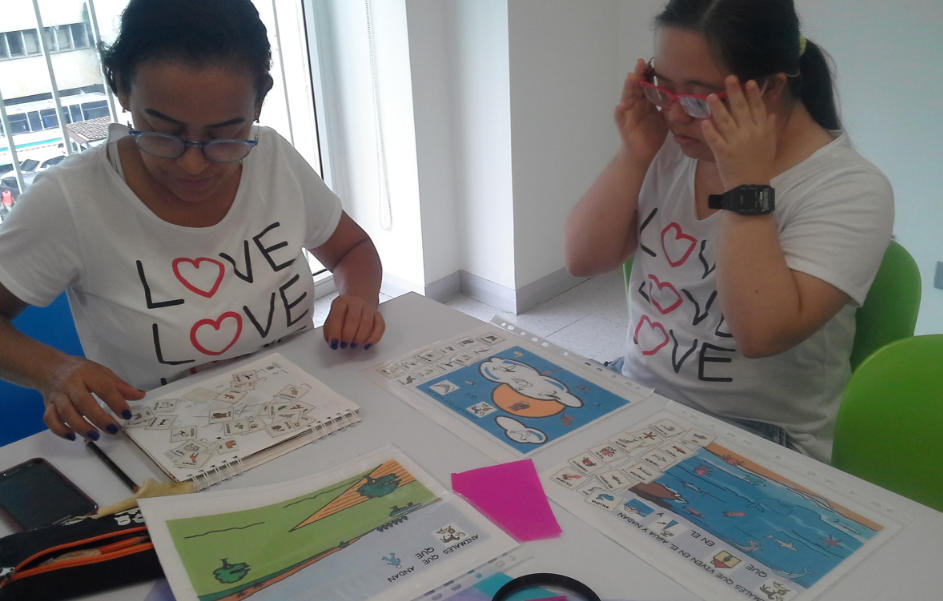
Today, many children with Down syndrome go to school and enjoy many of the same activities as other children their age. Some go on to college. Many go on to lead semi-independent lives. Still, others continue to live at home but can hold a job, thereby finding their own success in the community.
The bottom line, to me, is simple and not a big mystery. People who have Down syndrome are valuable. There is no excuse for them to be marginalized, to be looked down upon. There is no excuse for treating them differently simply because they have a different way of learning. The truth is that all people, whether they have a physical disability, a learning disability, or some kind of cognitive impairment, need a sense of belonging. We deserve to have the right to education, to an education designed for individuals and not for machines. This will be the only way to improve as a society, to achieve lasting change. It is vital to promote opportunities that make effective the rights of all, that favor their quality of life and their inclusion, and thus improve society in general.


